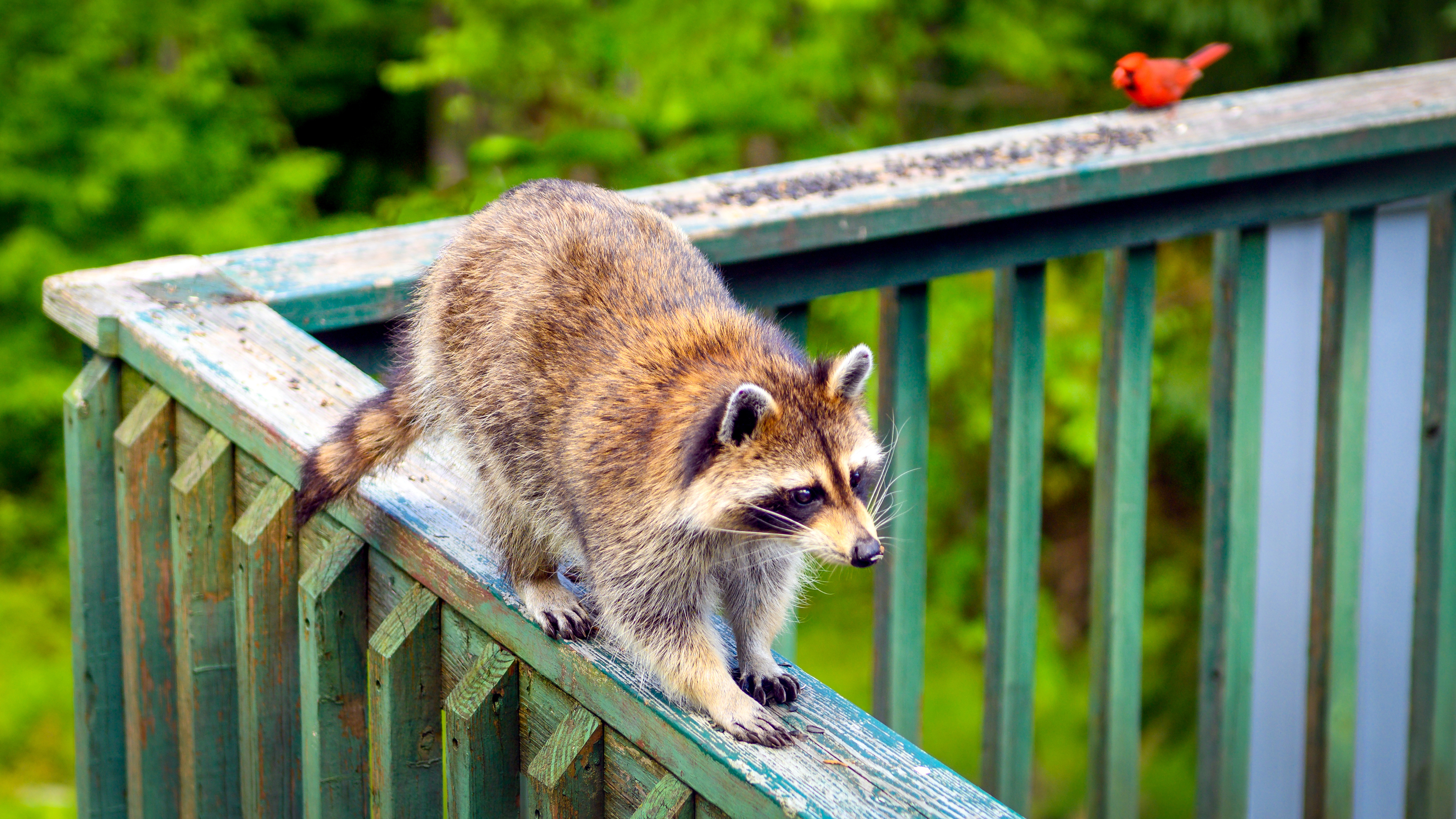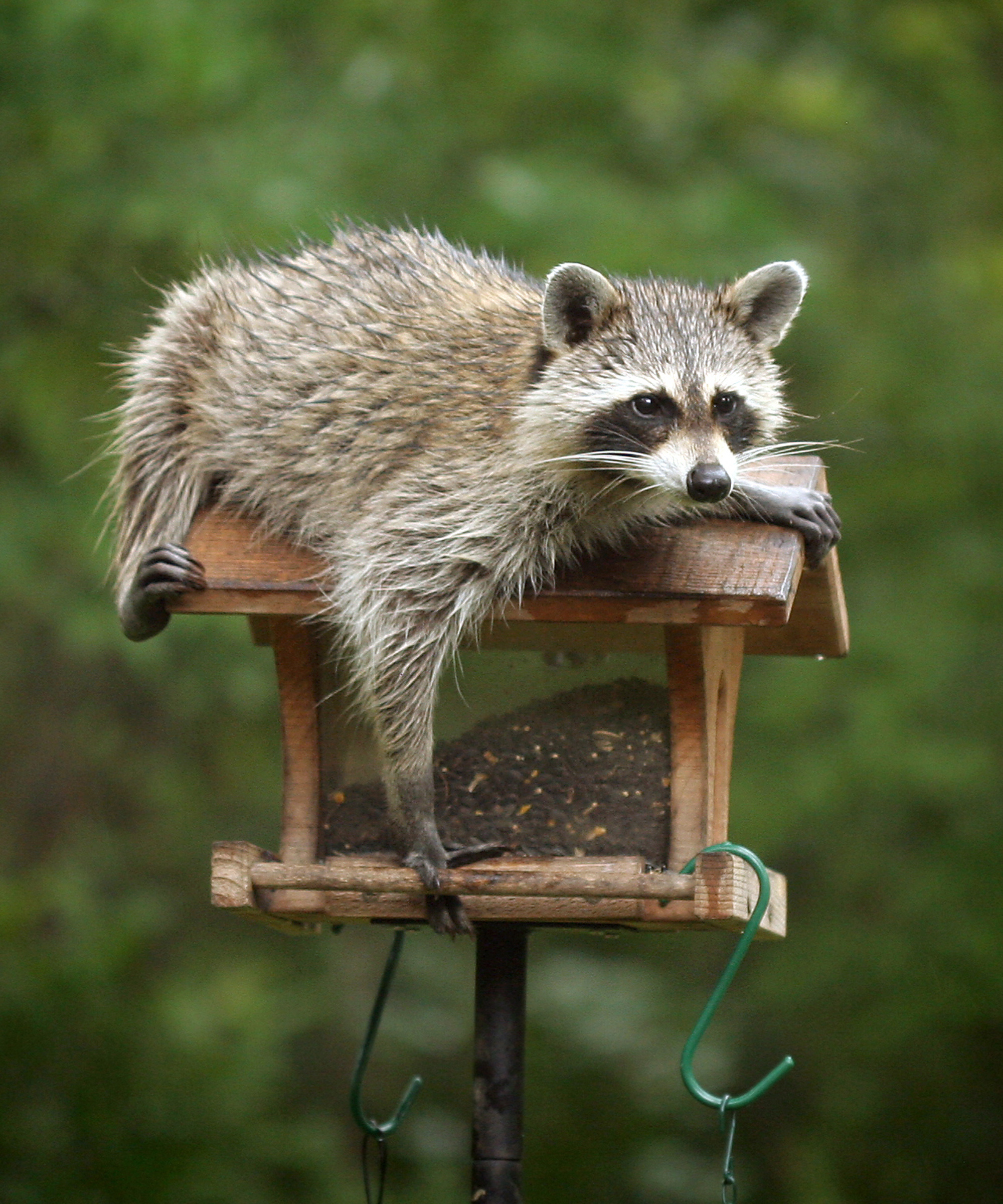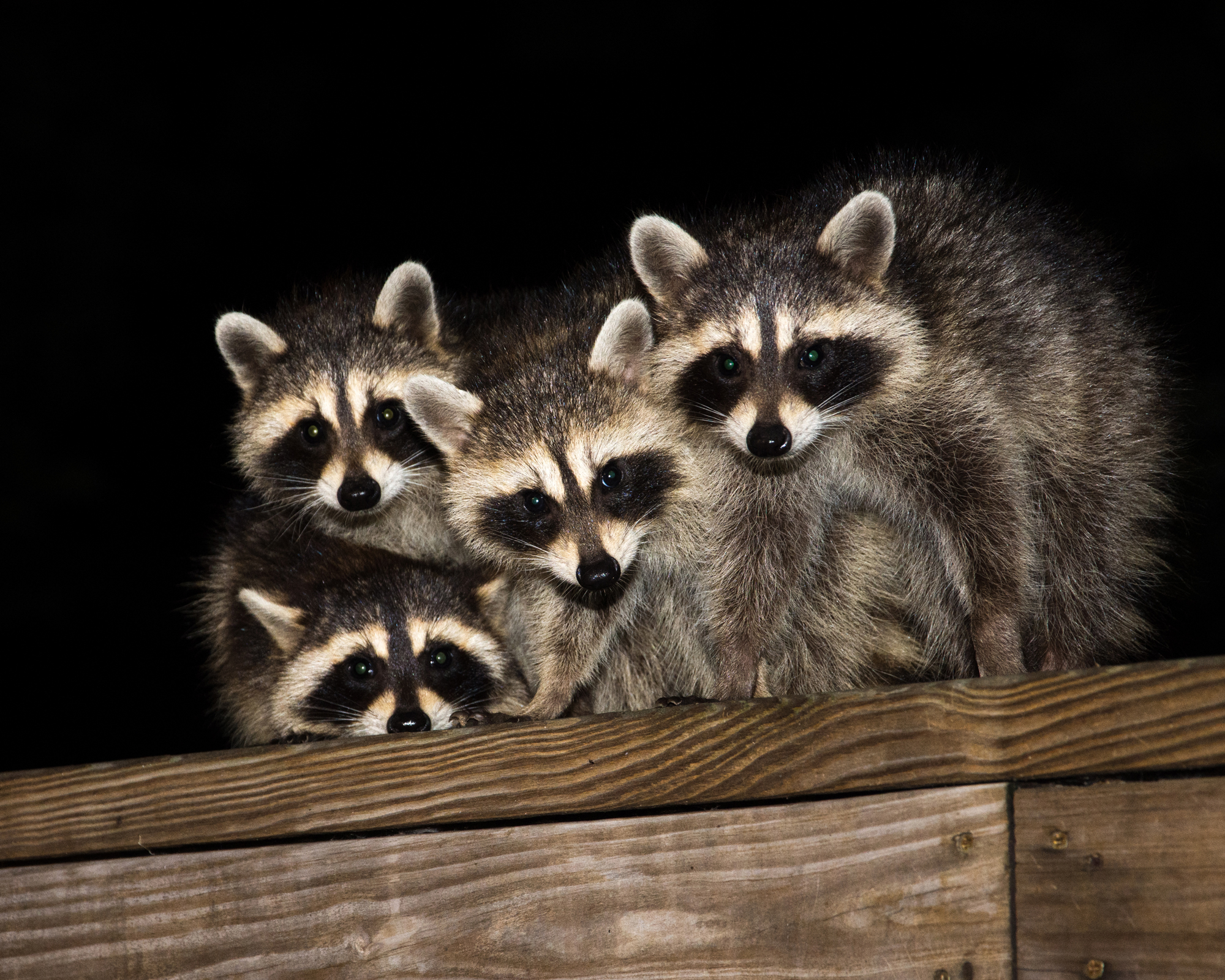How to keep raccoons away from your backyard or porch
Learn how to keep raccoons away, according to experts

Get small space home decor ideas, celeb inspiration, DIY tips and more, straight to your inbox!
You are now subscribed
Your newsletter sign-up was successful
Want to know how to keep raccoons away from your backyard? Raccoons are not known as 'night bandits' for nothing: they are known to patrol suburban and even urban areas at night in search of tasty morsels, often in groups. Some people are not too bothered by them and will even feed raccoons that come to their backyard or porch, but if you're not a fan of them, there are ways to keep them away.
So, if raccoons are cramping your backyard ideas, don't despair. With a bit of perseverance and the right tactic, you can keep raccoons away, without harming them and without having to call pest control.

1. Remove food sources
If you only do one thing to try and tackle your raccoon problem, then remove all possible food sources from your back and front yard. Conversely, keep food accessible to them and all your other efforts to keep them away will fail. As Jeremy Yamaguchi of Lawn Love points out, 'raccoons are smart and resourceful. If they can access food, they'll do everything in their power to get to it.'
This means keeping all lids on tour trashcans firmly shut and chaining the trashcans or keeping them in your garage. Yamaguchi also advises against leaving 'og or cat food on the porch' and taking care to only buy raccoon-proof bird feeders. 'If you're really concerned about raccoons, stop buying bird feed until they leave.' You can also buy a raccoon stopper from Amazon for your birdfeeder – it makes it difficult for raccoons to climb up to access the feeder.
2. Make your home and backyard less accessible
While food is the main reason why you're seeing raccoons about your property, they can also be enticed by nesting opportunities in your attic, basement or garage. Therefore, it's important to keep these areas as secure as possible. Adam Higdon, Region Service Manager and Wildlife Biologist at Critter Control, says placing 'guards on top of chimney openings and sealing any gaps along the exterior of attic walls also helps to keep raccoons from gaining entry to homes.'
Securing your backyard against raccoon intrusion will be more difficult as they are clever and expert climbers. Still, you may wish to explore fence ideas that are extra-tall and preferably outward-facing, to make it more difficult for them to gain access.
3. Use live cage traps
If you're finding all the raccoons frequenting your backyard a bit alarming, it may be time to start trapping them. Animal expert and dog trainer at Stayyy.com Aaron Rice recommends raccoon live traps (available from Amazon) that 'can be baited with food and the raccoon will enter the trap without being injured. Once inside, it will trigger the door and close behind them, trapping them safely.'
Get small space home decor ideas, celeb inspiration, DIY tips and more, straight to your inbox!
However, Adam Higdon urges caution when trapping raccoons because raccoons 'can become aggressive and territorial in an instant. They will attack people and pets if threatened. Each state has its own laws and regulations regarding trapped raccoons. Because of the danger and regulations, it usually is best to rely on a professional to get rid of a raccoon from your home.' Ultimately, if you're not confident transporting an angry raccoon for release, leave it to the pros.
4. Install motion detector sprinklers
No one likes being unexpectedly sprayed with water – raccoons are no exception. The combination of noise and water is often enough to frighten the raccoons. Once they get sprayed a few times they'll get the idea and likely will learn to avoid your backyard. This is not a guaranteed remedy as some raccoons eventually seem not to mind the sprinklers so much. The Orbit 62100 Yard Enforcer Motion-Activated sprinkler is a good option available from Amazon .
5. Try motion detector lights
There are all kinds of reasons to install the best outdoor security lights around your property. They're a good investment all around as they will keep human as well as animal intruders away from your home. Raccoons are nocturnal and will be startled by the bright lights at night. Again, they may or may not get used to the lights, but because of the many benefits of security lights it's well worth installing them anyway.
6. Install mesh barriers around your vegetable beds
If a thriving kitchen garden is your ambition, then be aware that it will very tempting to those hungry night bandits. Raccoons are omnivores and won't say no to your ripe tomatoes and strawberries. If you still want your own organically grown harvest but don't want the raccoons (and squirrels, and other hungry animals) then your best bet is to protect your vegetable beds with wire mesh. Or get into greenhouse gardening.

7. Keep your bbq area clean
One of the loveliest things about grilling meat and veg on the best bbq in the summer is the bewitching smell. Well, it's as bewitching to raccoons as it is to you, so make sure you clean your bbq and the area around it right after you've finished your backyard bbq party. It's not fun to clean straight away, but dirty grills and bbq sauce stains on your deck will attract raccoons.
8. Watch your compost heap
If you're just learning how to make compost it may be tempting to just throw everything onto your compost heap and hope for the best. However, many people learn the hard way that if you're not careful, you will end up with all sorts of critters in your backyard, including rats (yikes) – and, yes, potentially raccoons. Food waste should always go into a designated and secured food bin, and it's also best to buy a compost bin.
Is there a scent that repels raccoons?
In one word, no. While you may read advice online that recommends various essential oils to repel raccoons, Adam Higdon confirms that 'there are no scents that effectively repel a raccoon. Raccoons are intelligent and are more likely to remove offending odor than leave your house.'
Some people advocate the use of mothballs to repel raccoons, and it's true that raccoons dislike the smell. However, in practice, they more often than not learn to avoid and ignore the mothballs. Mothballs are also toxic and you don't want any wildlife ingesting them, so it's best not to use them.
Anna is a professional writer with many years of experience. She has a passion for contemporary home decor and gardening. She covers a range of topics, from practical advice to interior and garden design.